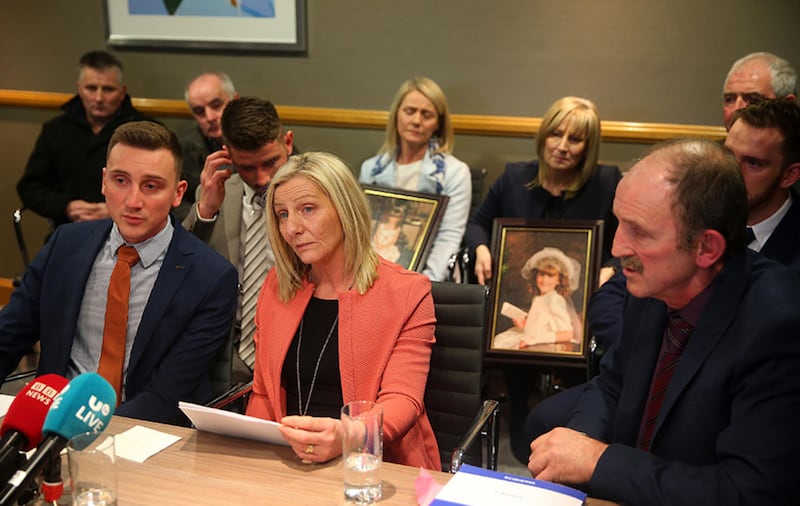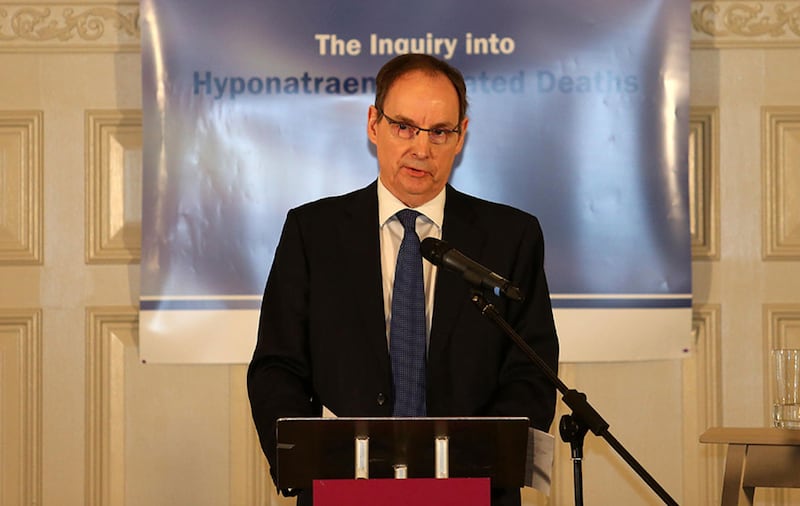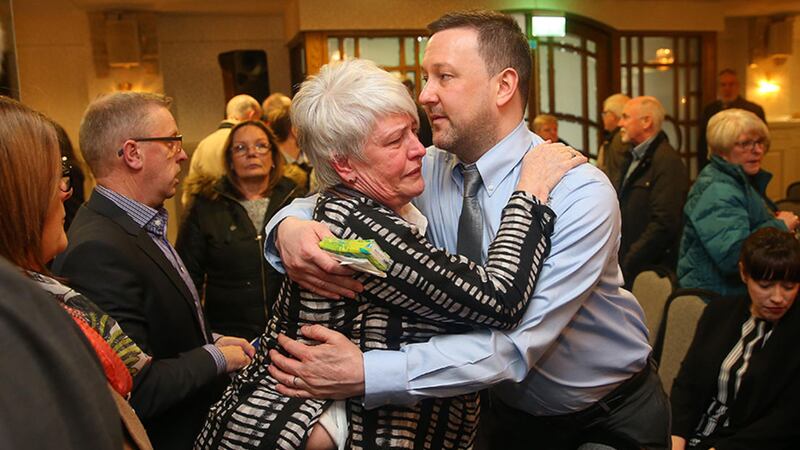A 14-year inquiry into the deaths of five children in the north's hospitals has concluded that four of them were avoidable.
The inquiry into hyponatraemia-related deaths found that medical professionals prioritised their own reputations over the public interest.
Hyponatraemia is an abnormally low level of sodium in blood and can occur when fluids are given incorrectly.
The inquiry's chairman Sir John O'Hara QC said the deaths of Adam Strain, Claire Roberts and Raychel Ferguson were due to "negligent care".
Sir John said: "The failure by senior clinicians to address the issue with appropriate candour suppressed the truth and inhibited proper examination of what had gone wrong.
"The motivations for this concealment maybe multiple but I (saw) amongst them a determination to protect their professional colleagues from having to confront their clinical errors.
"As a result the opportunity to learn lessons was disregarded and critical learning was lost to clinicians delivering fluid therapy to other children in Northern Ireland."
The inquiry also examined the aftermath of Lucy Crawford's death and found that her parents "were not told the truth" about the circumstances.

It also also found guidance issued following Raychel's death "wasn't followed" in the 2003 death of Conor Mitchell.
A new law should force doctors to be candid with families after a catalogue of failure and cover up, Mr Justice O'Hara said.
Former direct rule health minister Angela Smith set up the inquiry in November 2004 after allegations that fatal errors had been made by hospital staff administering intravenous fluids.

However, the probe did not get underway until 2012.
One of the most high-profile doctors who gave evidence during the hearings was the north's former chief medical officer, Henrietta Campbell, who admitted that the mechanisms for reporting hospital deaths 20 years ago were poor.
The mother of one of the children, Marie Ferguson whose daughter Raychel died in 2001, echoed the inquiry's call for a law forcing doctors to be candid.
She said: "No family should have to go through the mental and physical stress, hurt and undermining that we are still going through.
"I would like in memory of Raychel the introduction of a statutory duty of candour - Raychel's Law."
The inquiry chairman said apologies from Northern Ireland's health authorities had to be dragged out of them through expert evidence to his inquiry.
He was especially critical of an anaesthetist whose patient died during an operation but who failed to acknowledge his errors for many years.
"It is time that the medical profession and health service managers stop treating their own reputations and interests first and put the public interest first."







